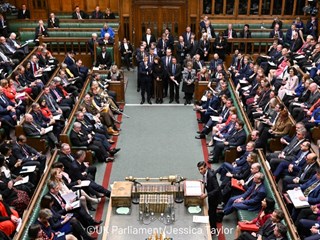
Chancellor Jeremy Hunt made his Autumn Statement today, and a number of key changes to fiscal policy were announced. Below we’ve listed some of the shifts which could impact your personal finances.
From the new tax year, which starts in April, those earning £125,140 or more will pay a 45% income tax rate. Previously, this threshold was set at £150,000.
The move comes just eight weeks after former Chancellor Kwasi Kwarteng announced plans to abolish the additional rate of income tax threshold altogether. Just 10 days later he made a u-turn on his decision.
Currently, those earning between £50,271 and £150,000 a year pay an income tax rate of 40%.
According to Shaun Moore, Financial Planning Expert at Quilter, a wealth management company, Hunt’s announcement means a quarter of a million people will move into the top income tax bracket.
“Someone earning £130,000 will pay an additional £243 a year in tax, which increases to £743 for those earning £140,000 a year. People earning £145,000 a year meanwhile will see a tax bill £993 higher,” he said.
Everyone in the UK has a £12,570 personal allowance. This means that up to £12,570 of your earnings are tax-free.
Hunt confirmed that this threshold will remain in place for a further two years, until April 2028.
In September’s mini-Budget, Kwarteng confirmed that the nil-rate Stamp Duty band would double to £250,000. At the time, HM Treasury said it would mean an extra 200,000 buyers would pay no Stamp Duty at all.
Today, Hunt confirmed that this measure will continue, but end in March 2025.
The current energy price guarantee ensures that the typical household pays the equivalent of £2,500 on their energy bills a year. According to the HM Treasury, this allows the average household to save approximately £900 this winter.
Hunt had previously announced that this support package would end in April 2023. He justified his decision by saying “it would not be responsible” to continue exposing public finances to volatile international gas prices.
Today, he announced that this scheme will continue from April, but at a higher level.
“From April, we will continue the energy price guarantee for a further 12 months at a higher level of £3,000 per year for the average household,” he said.
The national living wage will be raised to £10.42 for those aged 23 years or older from the beginning of the new tax year. Currently it stands at £9.50, which means this is the largest ever cash increase for the national living wage.
This works out to a £1,600 annual increase for full-time workers on the national living wage.
Hunt also confirmed that the state pension will rise by 10.1% from the beginning of the new tax year. According to the HM Treasury, this will be worth an additional £870 next year on average.
This means that the triple lock rule, which was a significant talking point in the build-up to Hunt’s statement, has remained in place. To understand how the triple lock rule works, read our article from earlier this week.
While the decision to keep the triple lock should give pensioners a form of relief, there are questions over its sustainability, according to Steven Cameron, Pensions Director at Aegon, a pensions and asset management company.
“Every 1% increase in the state pension costs around £0.9bn a year. And this isn’t paid for out of some fund built up in the past but from the National Insurance paid for by today’s workers,” he said.
Information is correct as of the date of publication (shown at the top of this article). Any products featured may be withdrawn by their provider or changed at any time. Links to third parties on this page are paid for by the third party. You can find out more about the individual products by visiting their site. Moneyfactscompare.co.uk will receive a small payment if you use their services after you click through to their site. All information is subject to change without notice. Please check all terms before making any decisions. This information is intended solely to provide guidance and is not financial advice. Moneyfacts will not be liable for any loss arising from your use or reliance on this information. If you are in any doubt, Moneyfacts recommends you obtain independent financial advice.